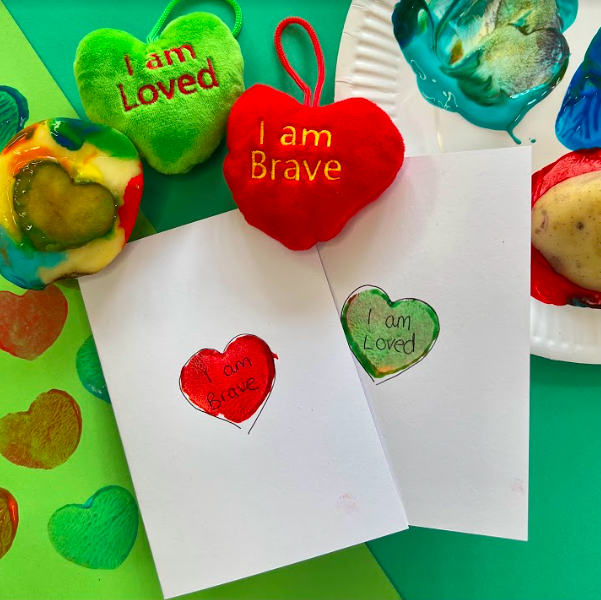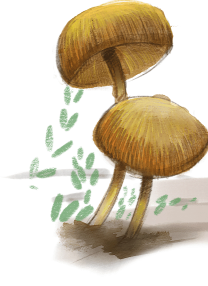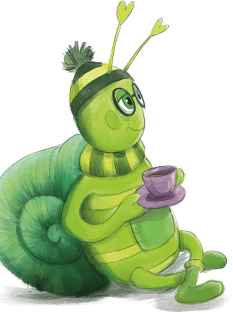Life in a city can feel busy, overcrowded, and fast paced. But even in the larger cities, like London there are parks, gardens and playing fields for children and adults to let off steam, reduce stress, take a breath, feel the fresh air, and connect with nature. And if you live further away from a city, you will find even more to explore as you invite nature into your lives.
No matter a child’s stage of development, exploring nature can have an educational, inspirational and therapeutic effect. At Hug-a-Bug World, we believe nature has the medicine to reduce stress and anxiety, reduce negative thought patterns and free the mind from the things that make it feel stuck.
Child Development and Nature
To encourage your child’s development as they step into nature, Hug-a-Bug World has put together activities to assist self-exploration as they venture outside to find the free gifts of nature. (You will find these activities in the Hive)
- Physical Play: never underestimate the simple acts of running around and playing physical games for your child’s physical development. When their blood rushes around their bodies it keeps their vital organs healthy. The activity strengthens their bones and muscles, and improves their balance and hand-eye coordination. The added benefit of developing physically is positive mental health. Exercise, whether formal or through fun fills the body with endorphins: the happy hormones!
- Learning Outside: the opportunity to learn outside is endless. From bugs, to flowers and plants, the changing sky and the way water differs from streams to ponds and lakes; there is so much information to feed their intellectual development. Even when going for a simple walk, take time to observe your surroundings. Allow your child the freedom to explore their environment, and watch how it ignites their imagination. Encourage their exploration and coach them to draw out more from them. They will have a wonderful experience noticing the difference between the colours of the leaves, the shape of different trees, and the variety of bugs. They will spot wings versus shells, spots versus stripes and whether they have eight legs or slither on their slippery bellies in no time.
- New Words: spending time outside gives children the opportunity to explore in their own way, encouraging a deeper sense of self. It is also the perfect opportunity for them to learn new words whilst they connect with the real thing. Ask them what they understand about their surroundings. Find out how they feel about being amongst the trees, the leaves and anything else you see. Being in nature is a sensory experience. Ask your child what they hear, see, smell, feel and even taste in the air. They might laugh at the last one, but it’s important to make things fun, so why not! You can also share your thoughts and feelings. How does being in nature affect you? They will learn from your words too. Children understand quite a lot before they find the words to express themselves. Don’t be afraid to share your observations even when you’re unsure that they’re old enough to understand. All of these different experiences in a relaxed environment will create an excitement in them. Before you know it, the words will flow and they may even teach you a new word or two.
- Expressing Emotions: whatever the difficulty in life, a change of environment and being outside can help. Whilst there are many pressures on families, many people find benefits in the simpler things in life and getting outside into nature. Exercise can create long-lasting benefits and time away from thinking about life’s stressors. It can help to release a build-up of pressure and stress which helps towards managing our emotions. We are able to see things clearer and cope and manage situations better. Even during difficult times children need space to be children, to grow and develop away from life’s pressures.
- Social development: as social beings, it is important for children to get on with others in life. In the woods, parks, and gardens, children can play and learn in groups using the Hug-a-Bug World activities where they will learn to work as a team. If they are shy or struggle socially, they may have one friend they feel safe with or you might want to show your support. Working together and interacting with others builds the social skills that will help your child throughout their life. Young children will of course need supervision and you may want to guide them as their ability to show empathy towards others takes time to grow. As children play together in nature, they learn about themselves, how to explore with and look out for others and they will also form long-lasting relationships as they create experiences together. Support them by suggesting what they can look out for, how they can complete tasks, overcome obstacles, and pointing out the different things you come across. With your guidance they will learn and adapt for the future.
Nature is therapeutic, helping our health, behavior and mood. Nature can especially form a vital part of educational development for children with learning difficulties or physical challenges. Nature engages all our senses. In addition to touch, smell, hearing, sight, and taste, the vestibular senses relating to movement and balance, and the proprioception senses of strength force and effort can also be challenged, developed and tested in nature.
Many parents and carers of children with learning or physical difficulties have advocated for better support and access to equipment to keep fit and explore the outdoors. Some children need transport to get to places and better access to open space. Going into the woods can be a challenge for anyone with a wheelchair, walker, or pushchair, but parks often have reasonable access and equipment to support the public.
Whist we all learn in different ways, by taking activities outside, the physical and mental benefits of exploration and fresh air support whichever way your child wishes to learn. Outside children let off steam, and when they come back inside, they are usually more settled, focused and calm.




